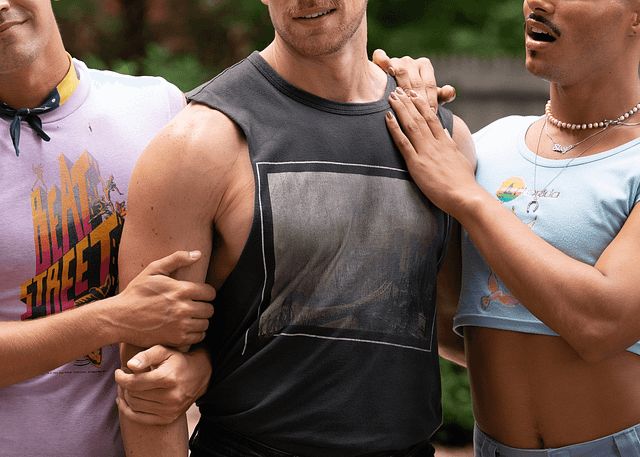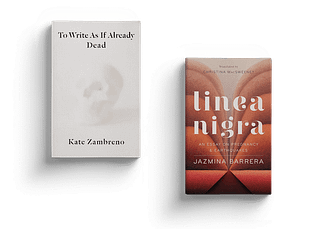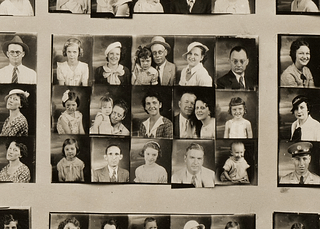
I’ll admit, when the trailer dropped for Fire Island, I was already skeptical. Like many other tender-hearted queers, I’ve been waiting for a Great Homosexual Romantic Comedy, but the actual Fire Island Pines, which I’ve yet to visit, has always had a somewhat menacing quality in my mind — the supposed oasis doesn’t have the most welcoming reputation. I’ve been primed to associate the Pines as a sexual candy store almost exclusively for white gays or, if not white, for the twinkish and more conventionally attractive. I’ve felt alienated at the potential hostility such a space could offer someone like me, a fat queer person of color. I had some sense that the movie, directed by Andrew Ahn and written by Joel Kim Booster, was going to satirize that exclusive culture, but how far would it go?
For the record, I never arrive at a piece of media, be it queer or hetero, expecting to see my own experiences or politics reflected in a polished mirror. (Nobody needs to see a movie with sequence after sequence of someone noncommittally flitting between Grindr and Uber Eats.) Instead I seek out films to expand my understanding of the various ways a life can look, whether the mechanism of that learning is through humor or horror or sincerity. With queer media, I’m curious to complicate my understanding of the identities I lay claim to — witness how varied and nuanced they manifest across the community. So I went into my viewing of the film excited to see how other queer people of color, specifically gay Asian men, navigate the messiness and frustration of modern dating and hookup culture within predominately white spaces. But while Fire Island offers commentary on the intersections of race and class in white queer spaces, the circumstances of its happy ending undercut these criticisms. Was I expecting too much?
A contemporary adaptation of Pride and Prejudice, Fire Island swaps out the Bennetts with a queer chosen family, led by the screenwriter Joel Kim Booster’s witty and acerbic Noah. Noah’s friendship with Howie, played by Bowen Yang, becomes the central thread of the film as the group sets out on an annual week-long vacation and Noah declares it’s his goal to get Howie laid, promising to put off his own sexual conquests in the meantime. The two friends are presented as holding dueling views on love and dating: Howie, feeling “terminally alone,” wants romance, a boyfriend, and doesn’t much like the idea of casual sex; Noah prefers hookups and lampoons the compulsion to partner up, quipping, “the monogamy industrial complex rears its ugly head.” (Approaching thirty without having had a long-term relationship of my own, I was partial to Howie’s wallowing, which oscillated between appropriately annoying and emotionally compelling.)
Enter the love interests: for Howie, there’s the sweet, dim, golden retriever of a man, Charlie (Fire Island’s Mr. Bingley); for Noah, we’re introduced to the aloof curmudgeon Will (Mr. Darcy). Charlie is white and Will, while not white himself, hovers at the edge of an exclusively white and wealthy friend group whose disdain for Noah and his friends is palpable. There is a third love interest, Dex (Mr. Wickham), also white, who is thrown our way as an object of attraction for many in the core friend group until his character arc takes a nefarious turn, in keeping with his Pride and Prejudice predecessor.
That all the main love interests are either white or classed as white fits into a larger trend of narratives on television, movies, and in books about people of color having to fall in love with someone white in order to be accessible to a “wider” i.e. “white” audience. That Noah’s love interest, Will, is the only person of color in his group would be more interesting if it weren’t ultimately confusing why he continues to hang around them, given their cattiness and flagrantly racist behavior. And race does seem to be the most germane distinction between Noah and Howie’s chosen family and Will’s elite posse. Noah and Howie don’t take interest in their respective men because of class status — at least not initially — and while they and their friend group are struggling financially in comparison, there isn’t a real sense that upward class mobility is the goal here. Instead, the dynamics make Howie’s personal struggle with isolation and insecurity around his desirability read as being almost exclusively in relation to whiteness.
It’s a familiar position. White beauty standards and desirability are constantly impressed upon queer people of color. Who gets to be seen as hot and attractive? Who is worthy of love? Howie’s anxiety about not meeting the standards of a racist system is poignant. We see it when, after Howie is broken-hearted to see Charlie making out with another guy at a party, he decides to hook up with the first white guy who expresses interest in him. Noah pulls Howie away, telling him, “fucking some rice queen” isn’t going to make him feel any better, and there are plenty of other guys out there. In another emotional scene, Howie tells Noah that they’re living two different realities. Noah has options, he has a ripped body that guys find attractive, he isn’t as isolated and alone as Howie.
But despite considering the nuances of fetishization and tokenization, at the most pivotal moments, the film’s plot feels bizarrely regressive. After Howie decides to cut his trip short and leave, Noah confronts Charlie, telling him to do something to get Howie to stay, that he has “the chance at something real with Howie. Something great.” Right on cue, in walk Tweedledum and Tweedledee — two cartoonishly villainous white gays, including Charlie’s ex — delivering a rare moment of blunt vitriol. “Nobody wants to fuck your friend,” one says, followed by the other asking, “You think Charlie likes that little Asian guy?” Charlie doesn’t really defend Howie, his response amounting to little more than a child stomping his foot and saying, “Hey, that’s not very nice!” before standing around waiting for someone to spoon feed him his next move. I suppose one generous reading of the scene would suggest that Charlie, ever the idiot, finally realizes how toxic and racist his white friends are; his world has been rocked by this revelation, and so he is stunned! Sure. A scene later he arrives too late to stop Howie from boarding the ferry home where Noah tells him he needs to do something big to fix this. The group then helps doe-eyed Charlie get Howie back. This confused me. After Charlie’s muted response to his friend and ex, Noah tells him, “I am the only person this week who stopped to consider whether you deserved [Howie].” So what changed?
In the end, Howie gets his man, and Noah gets his too. And everyone dances in glee against a sunset and the joyful tune of Donna Summer’s “Last Dance.” Don’t get me wrong, the celebratory ending hits one with all the feels. How could it not? I mean it is Donna Summer. But what exactly is being celebrated here?
We all have our reasons for watching and loving romantic comedies. More than escapism, I think what keeps me coming back is the idea of wish fulfillment, that against all odds love — platonic or romantic — can prevail, and one can really have what they want. That everyone has their own Great Love Story. The happy ending we’re given in Fire Island feels familiar, in line with so many other romantic comedies, even to a fault, as writers like McKenzie Wark suggest. Is it fair to ask it to deliver something more nuanced than its predecessors in the genre? But when the film chooses to explicitly explore racism and classism in the gay community, it seems fair to evaluate it on that score as well. What, then, do we do with those moments where the film capitulates to a white gaze?
Maybe it’s unfair to place so much weight, for instance, on the scene in which Charlie fails to stand up for Howie. The trope of the clueless White Boyfriend existed long before Fire Island. The issue alone isn’t that Charlie is white, it’s that his behavior and passive racism — there’s no way this is the first time he witnessed these friends being vehemently racist, right? — is so quickly swept under the rug. Charlie is allowed, even encouraged, to make his grand declaration of infatuation for Howie, who finally gets to feel desired by a white man, as MUNA’s cover of Britney Spears’s “Sometimes” croons and Noah and crew wave literal Pride flags behind them. Did it make me tear up? Yes. I’m easy. Still, in a film that grapples with the realities of navigating queer white spaces as people of color, it would have been funny and even narratively satisfying to see the archetype of the White Boyfriend skewered.
For that to have happened, though, the film would have needed to break away from its source material. This might have also benefited another of Fire Island’s threads: the lasting power of queer friendship. While the film dives into Noah and Howie’s relationship, the treatment of the secondary characters goes unexplored. I wish the movie would have fleshed out the rest of the friend group, especially the other two people of color, Tomás Matos’ Keegan and Torian Miller’s Max. For the bulk of the film, they serve as comic relief side characters (as does Matt Rogers’ Luke, though he plays an important part in the Mr. Wickham-subplot). Keegan presents as hyper femme and Max, who is fat and Black, “claims he doesn’t come on this trip to hook up, but he puts out in the Meat Rack just like the rest of us,” according to Noah. And while the film circles back to this with Margaret Cho’s Erin telling Max, “We all know you’re getting your ass ate in the dunes,” what we actually see of both of characters doesn’t reveal much about their sexual lives within the same oppressive environment Howie finds himself navigating alone. Though neither characters are Asian, it seems reasonable that they would have something to say about surviving the same white, hypermasculine waters of faggotry as Howie, and it might have been a good opportunity for the film to subvert expectations and maybe provide a chance for the friend group to act like actual friends rather than a group Noah and Howie find themselves saddled with most of the time. It feels like a wasted opportunity in a movie that wants to reveal real stigmas and divides along race, class, and body types.
So my wishes for the film went largely unfulfilled. In its faithful adaptation of Pride and Prejudice, Fire Island unintentionally replicates the whiteness of the text. As queer cinema expands and flourishes into more genres, there is so much potential to show the various ways queer people, particularly queer people of color, find and sustain love in community, in relationships, in friendships. Maybe the answer here isn’t to look to the narratives that excluded us. (Or if we do turn to these narratives, why not truly refashion them, in more than just our image?) Maybe this involves reimagining not how we can fit into the romantic comedy genre but what that genre can do for us. There is something powerful in reclaiming a narrative like Austen’s novel that did not concern itself with queerness or race beyond its own whiteness, however, if we are just retracing the formula beat by beat, aren’t we holding up the very systems we aim to interrogate and dismantle? What might Happily Ever After look like once we shed these constraints? Maybe, then, the happiness and burst of joy would feel more than fleeting.


